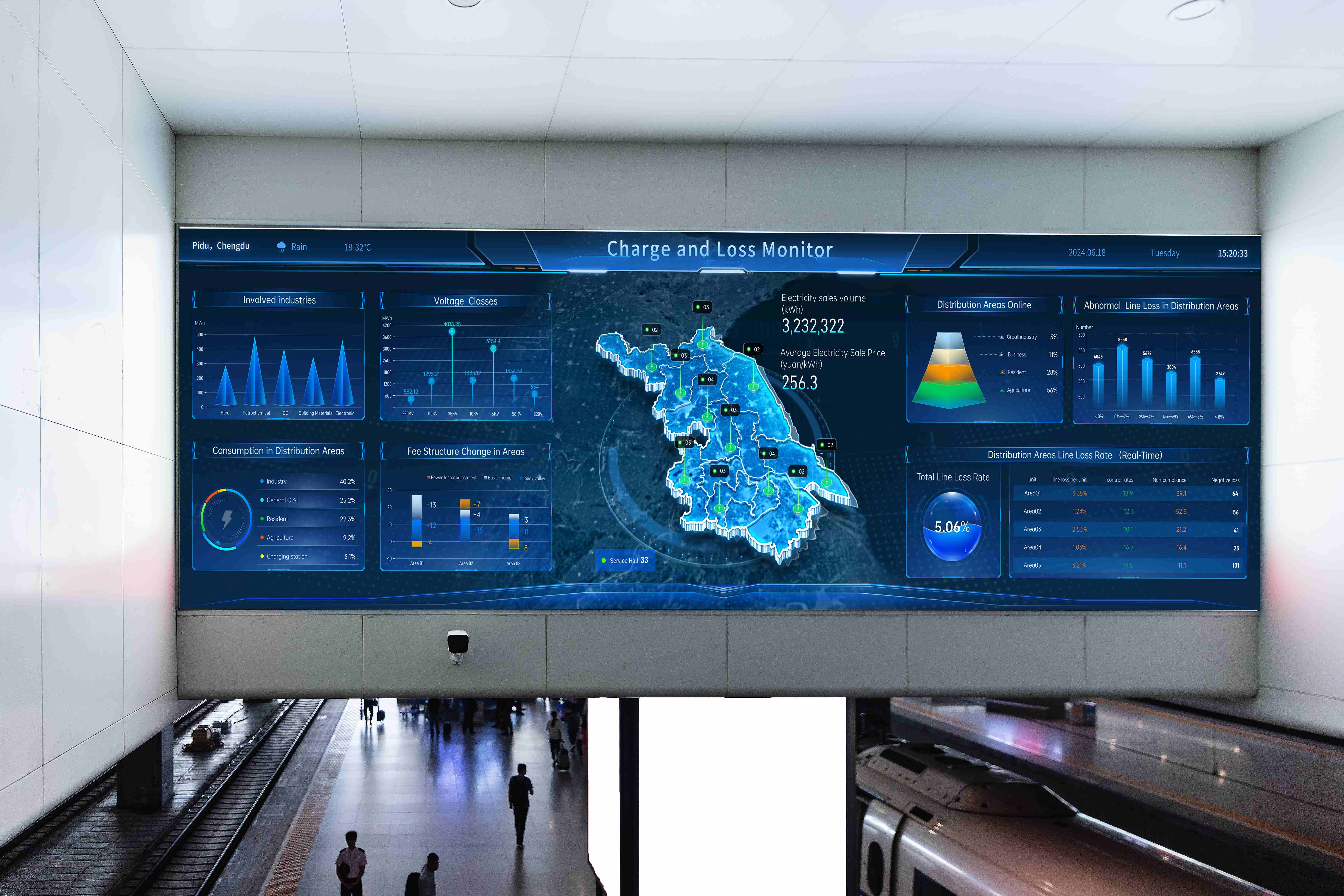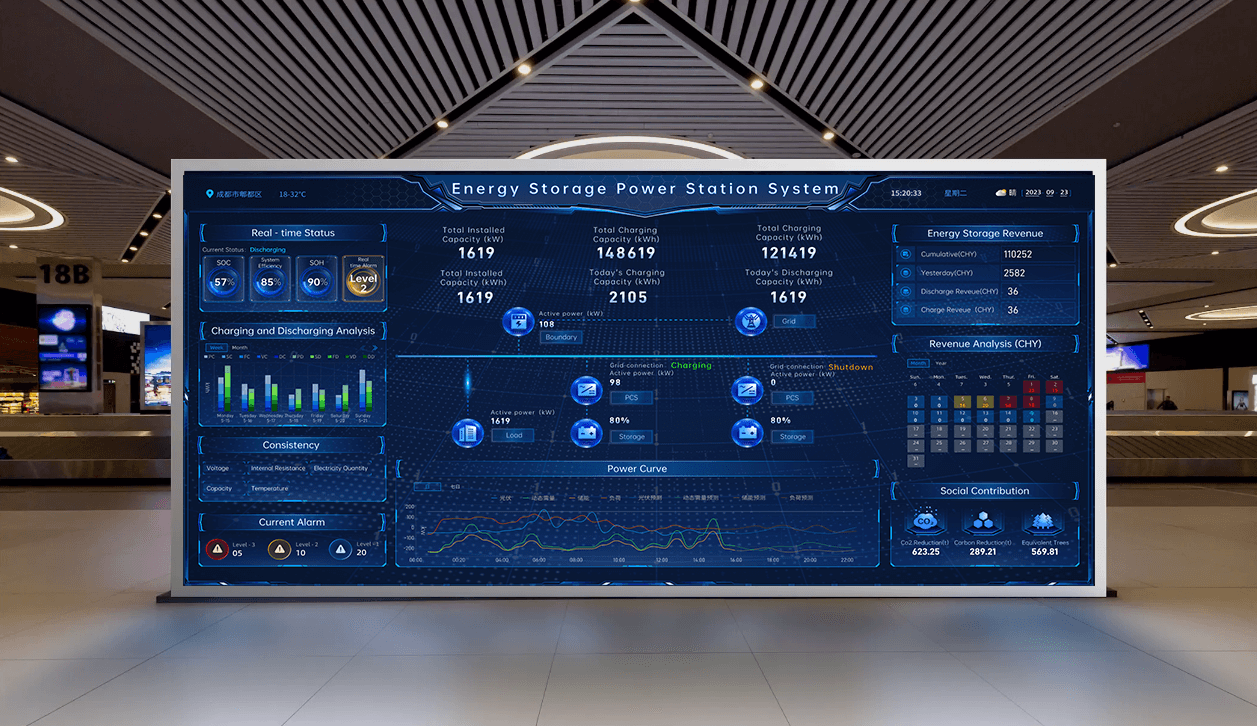Real-Time Monitoring and Data Collection
The EMS system can monitor key data such as energy storage battery information, power information, power curve, PCS total charge and discharge in real time. These data are collected and analyzed through the IOT, cloud computing and big data technology to ensure the efficient operation of the system.
Energy Management and Optimized Scheduling
The EMS system is responsible for energy scheduling and optimization, including the configuration and management of charging and discharging strategies, and supports switching between multiple operating modes and profit scenarios. It can intelligently adjust the charging and discharging strategies of energy storage equipment according to grid demand and electricity price changes to achieve peak-to-valley shifting.
Fault Alarm and Maintenance Management
The system provides fault alarm function, which can record and query events at all levels, and distinguish event types and importance. Administrators can perform maintenance and repairs without affecting the overall business operation of the system.
Multi-Dimensional Data Analysis and Visualization
The EMS system supports multi-dimensional data analysis and statistics, including energy consumption and revenue data, and displays them through a visualization interface. This helps users better understand energy usage and optimize energy management strategies.
Remote Control and Cloud Platform Integration
The EMS system supports remote control and cloud platform integration, allowing users to control the power station status anytime and anywhere. Through wireless network connection, the EMS system can realize remote monitoring and intelligent scheduling of distributed energy storage systems.
Improve The Economic Efficiency Of Energy Storage
By optimizing energy management and scheduling strategies, reduce operating costs and improve the economic benefits of energy storage systems.
Ensure Safe Operation Of Energy Storage
Real-time monitoring and fault alarm functions can promptly detect and handle potential risks, ensuring safe and stable operation of the system.
Flexible Expansion and Adaptation To Various Scenarios
The modular design supports on-demand expansion of system scale and functions to adapt to different application scenarios and business models.








